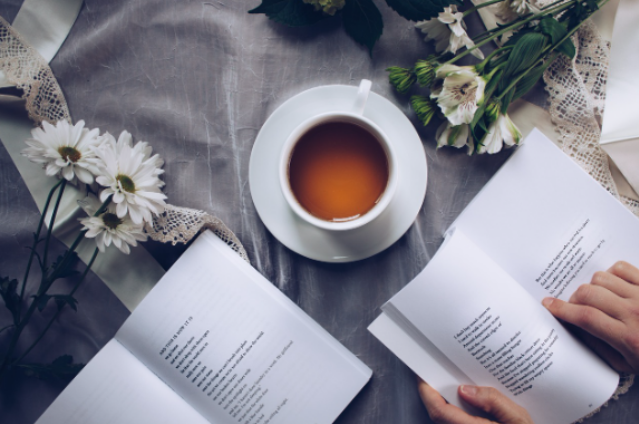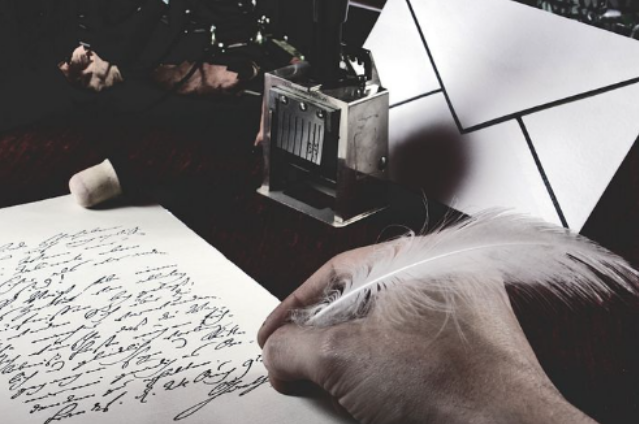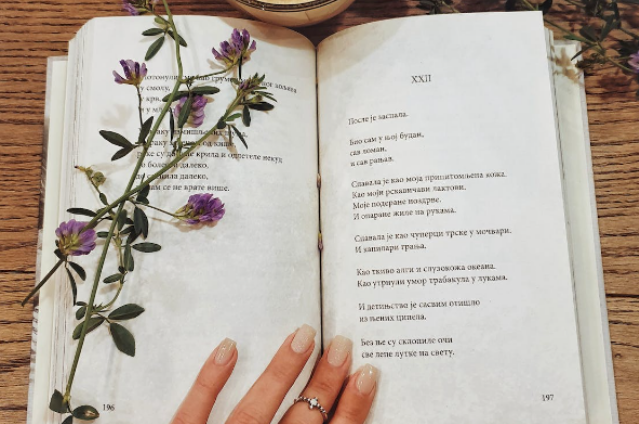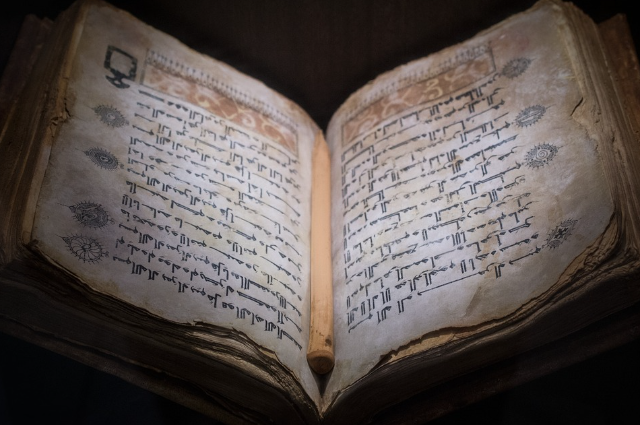Poetry is not only any English term referring to English literature but also is a direct passage to read and reach people's hearts and minds. Poetry embarks our souls and captivates our minds in such a way that no other form of writing can do.
WHAT IS POETRY?
Poetry is the poetic expression of the poet's heart, spirit, and intellect of mind in words. They can describe their experience with illness or share their phobia of creatures hidden in closets. Celebration, devotion, or sorrow are all imaginable in poetry. These remarks might come from the joy of new birth or the agony of a loss. Poetry not only affects readers' lives, but it may also be restorative for the poet. Poetry puts into words sentiments that individuals may experience but struggle to verbalize.
Poetry is an art form, and in my opinion, it is the strongest and most arduous to the master of all artwork. True poets must be authentic and have confidence and trust in the impact their art will have on the globe and the culture they live in. Poetry explores humanity's greatest enormous emotional capacity. It's a more nuanced form of writing that results from a higher level of imaginative creativity that emerges from the poet's heart. Contrarily, prose works with exterior cognition. This way of communication is clearer and more practical. It is a formal writing style that is more analytical and meticulous.
It makes it possible for mankind to see things from a different perspective, as opposed to poetry, which is shrouded in mystifying imagery beneath the exterior of things and can only be understood by eyes inside our minds. Poetry is wisdom that has been beautifully portrayed using symbols. In essence, poets play a crucial role in every community since their prophetic sayings persist long after their burials.
IMPORTANCE OF POETRY

1. In life:
Poetry is a way of communicating with oneself.
It empowers you to comprehend that everything has a deeper value and goal hidden just below the surface. Poetry urges you to dig deep and to determine the meaning behind actions in a world that appears increasingly useless. Good poetry establishes a setting that the readers may more possibly connect by drawing on fundamental impulses.
Poetry exposes you to multiple international cultural aspects.Poetry can be produced in a variety of formats to maintain ethnic eras from antiquity to the contemporary. When poetry is composed in a regional vernacular, for example, it preserves these poems in a few different ways. This supports the retention of regional language and culture in a globalizing world. It is fruitful for people of all ages and ethnic backgrounds to get a look at someone's everyday existence from a place or epoch they may not be able to identify with.
Poetry improves your language skills.
It takes more than simply innate aptitude to be able to recite poetry fluently. It is a supplementary means of communicating your thoughts. The audience may gain a sense of who you are by attention as far as how you articulate each vowel sound, accentuate appropriate vocabulary, and recite your poem effectively. It displays to them your views, your perspectives on a specific subject, and how you connect to these specific beliefs. It promotes presentation, which is exceedingly challenging for the majority to do. Therefore, poetry facilitates in the exposition of one's convictions and expectations by granting one to utilize more words to convey their assertion.
2. In Society:
Human groups have sentiments that they find it difficult to express in words in writing or verbally. Luckily, when one takes some poetry to read or reads snippets from a selection of the greatest works, the thoughts take the correct shape, new ones appear, and one transforms their perception or reasoning ability about certain topics. Poetry is a tremendous way to integrate feelings, happenings, and visual depictions.

PURPOSE OF POETRY
The highest style of writing, poetry, has an impact on us because it represents people in all their depth. Poetry is basically one of the oldest forms of artwork and an invention of the human psyche. It represents a variety of human characteristics, spanning companionship, romance, death, and others. Poetry still holds the top ranking in literature because of its remarkable capacity to influence the world. Other literary genres like the novel, musicals, collections of short stories, etc. still pale in comparison to poetry. Around the world, poetry is widely taught and institutions. Because poetry can trigger pupils' emotions and inspire their imagination, this is the case. From Chaucer's time to the Modern English Period, poetry dominated the artistic landscape in England.
Poetry, in comparison to prose, calls for us to pay attention to language not simply phrase by phrase or even word by word, but rhythm by rhythm and sound by sound. Poetry's own pulses and melodies compel us to pay attention, to enlarge our senses, and to become conscious of how our bodies acquire meaning. Similar to how shorter sentences slow us down, so do line breaks in poetry lines. Poetry challenges us to stay present in the act of reading rather than scrolling horizontally. It begs for involvement.
Like the thinker Simone Weil puts it, this act of slowing down and paying attention is a holy one: "Attention, taken to its fullest degree, is the same as prayer. It implies combining affection and faith.
BEAUTY OF POETRY

Poetry is a showcase of feelings expressed through the fire of many words that precisely transport the reader to the location the author wants them to go in order to grasp the actual essence of it.
Poetry expresses the author's perspective on the purpose and meaning of life. And when the reader grasps the actual significance of it, this is where the beauty lies.
Poetry has the ability to move you to tears, bring you to mirth, bring you comprehension of life, bring you strength, and more.
However, the goal is still to please the reader with the text's meaning and language. And in my opinion, this is what makes poetry so beautiful.
POWER OF POETRY
Poetry is a powerful instrument for invigorating, assisting, and refining language development in all pupils. Poetry astounds the audience with its purity, relevance, and engagement, like a beautifully chosen gift.
Poetry is much more than merely word-by-word, couplet, or perspective rhyming word placement for each couplet in a poem. It is a transparent way for an individual to communicate ideas, feelings, and desires to others. When opened, it is a present that claims to offer the recipient a lot of positive effects.
It can be used to begin a brand-new unit of study, introduce pupils to important vocabulary they will face, review key principles covered, or stretch a unit of study. Students can use poetry that is pertinent to the subject matter as a technique to assist them in improving their vocabulary and absorbing concepts throughout the course of the unit. It is a straightforward method for presenting difficult ideas to pupils in a manner that is not daunting but rather remembered and understandable. They are more likely to gain background knowledge and participate in discourse about the subject when a unit of study is invented with a poem.

ROLE OF POETRY IN EDUCATION
Language and literacy capabilities are developed by reading and creating poetry. Students are able to recognize the incredible potential of language in defining expression and generating meaning. Poems can also be understood by L2 learners because they frequently violate grammatical and grammatical standards. Poetry allows them to play with words without being constrained by strict syntax and structures, despite the fact that their repertoire may initially be limited. Poetry offers kids the same chance to study and take in varied writing styles from a wide range of authors as reading does.
Poetry first emerged as a form of oral art. Poetry was traditionally exchanged orally instead of recorded and transferred. Poetry often has an audible dimension, and rhyme and rhythm are critical parts. It will also be more straightforward to comprehend poetry as production if you teach your students to perceive it as music and sound. Consider Benjamin Zephaniah, a poet who speaks poems for audiences in schools and who continues to encourage young people. The performance of poems by your students will boost their public speaking abilities and conscience in front of the public.

CONCLUSION: POETRY IS A VERBAL TEXT
Poetry is a kind of literature that uses a condensed, rhythmic arrangement of words to portray a notion, depict a scene, or tell a tale. Poems can be organised by reciting lines and meters, which base a line's rhythm as well as an emphasis on syllabic strokes. Poems may also be context-sensitive and have no set format.
Stave, also referred to as a verse, is the fundamental unit of a poem. A stanza, which is a cluster of lines alluding to the same idea or subject, is comparable to a section in prose.
Poem lines can be stretched, with extra space between words, or indented. An aesthetic cue IS how a poem should be read is supplied by the white space that surrounds it.
